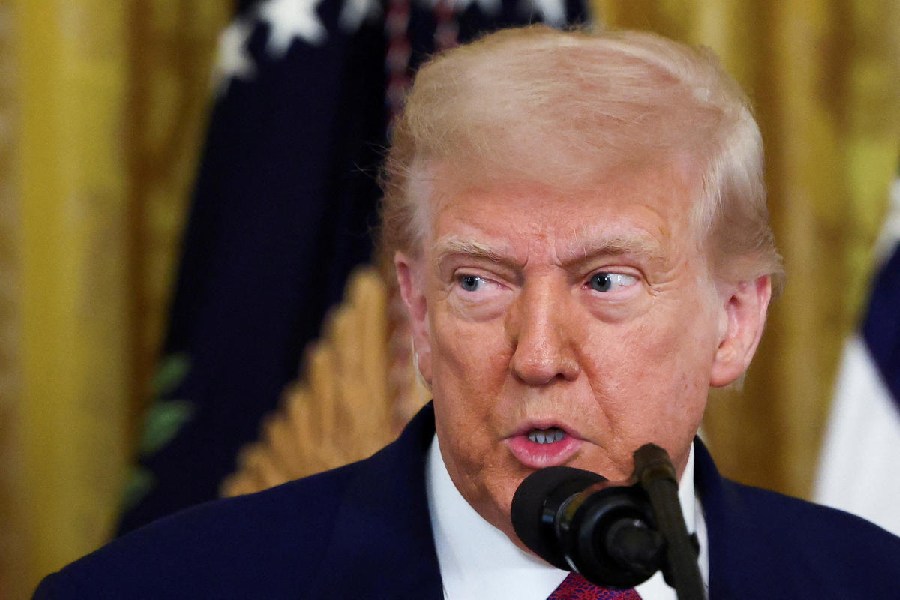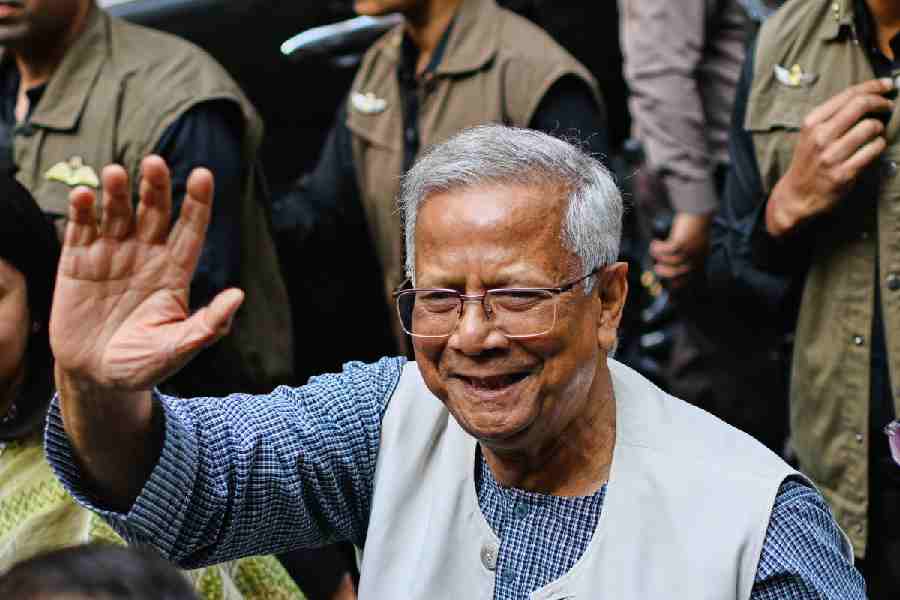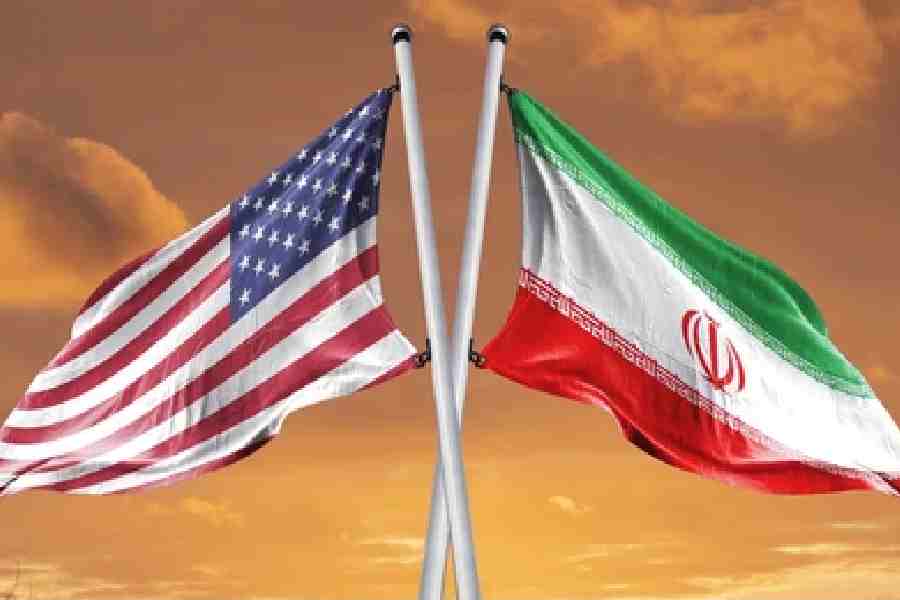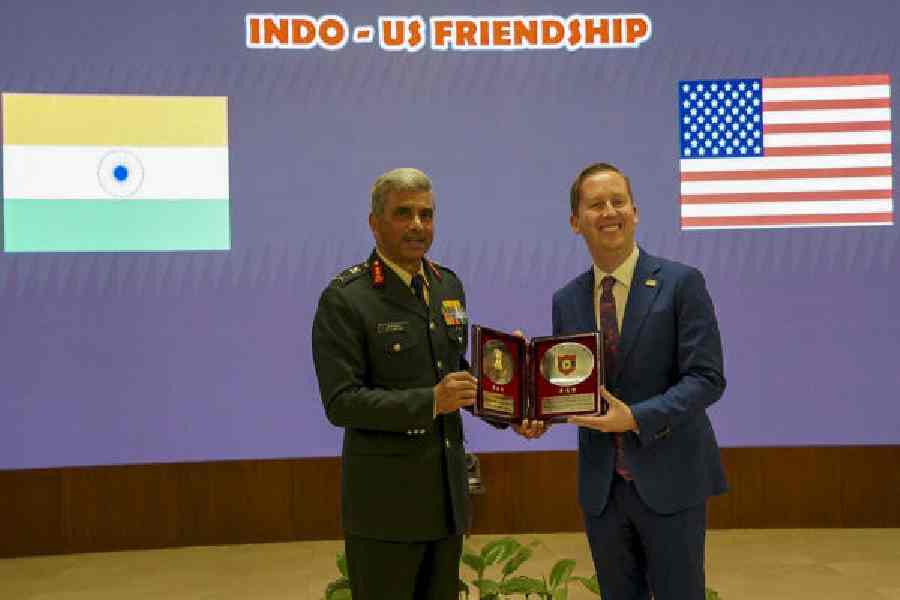US President Donald Trump on Friday urged Iran to quickly reach an agreement on curbing its nuclear programme as Israel vowed to continue its bombardment of the country.
Trump framed the volatile moment in the Middle East as a possible "second chance" for Iran's leadership to avoid further destruction "before there is nothing left and save what was once known as the Iranian Empire".
The Republican president pressed on Iran as he met his national security team in the Situation Room to discuss the tricky path forward following Israel's devastating strikes, which Prime Minister Benjamin Netanyahu pledged to keep up for "as many days as it takes" to decapitate Iran's nuclear programme.
The White House said it had no involvement in the strikes, but Trump highlighted that Israel used its deep arsenal of weaponry provided by the US to target Iran's main enrichment facility in Natanz and the country's ballistic missile programme, as well as top nuclear scientists and officials.
Trump said on his Truth Social platform that he had warned Iran's leaders that "it would be much worse than anything they know, anticipated, or were told, that the United States makes the best and most lethal military equipment anywhere in the World, BY FAR, and that Israel has a lot of it, with much more to come -- And they know how to use it."
Just hours before Israel launched its strikes on Iran early on Friday, Trump was still holding onto tattered threads of hope that the long-simmering dispute could be resolved without military action. Now, he will be tested anew on his ability to make good on a campaign promise to disentangle the US from foreign conflicts.
In the aftermath of the Israeli strikes, the US is shifting its military resources, including ships, in the Middle East as it looks to guard against possible retaliatory attacks by Tehran, according to two US officials who spoke on the condition of anonymity to discuss sensitive matters.
The Navy has directed the destroyer USS Thomas Hudner to begin sailing toward the Eastern Mediterranean and has directed a second destroyer to begin moving forward, so it can be available if requested by the White House.
As Israel stepped up planning for strikes in recent weeks, Iran had signalled the United States would be held responsible in the event of an Israeli attack. The warning was issued by Iranian Foreign Minister Abbas Araghchi even as he engaged in talks with Trump special envoy Steve Witkoff over Tehran's rapidly-advancing nuclear programme.
Friday's strikes came as Trump planned to dispatch Witkoff to Oman on Sunday for the next round of talks with the Iranian foreign minister.
Witkoff still plans to go to Oman this weekend for talks on Tehran's nuclear programme, but it is unclear if the Iranians will participate, according to US officials who spoke on the condition of anonymity to describe private diplomatic discussions.
The president made a series of phone calls on Friday to US television news anchors to renew his calls on Iran to curb its nuclear programme.
CNN's Dana Bash said Trump told her the Iranians "should now come to the table" and get a deal done. And Trump told NBC News that Iranian officials are "calling me to speak" but did not provide further detail.
Trump also spoke on Friday with British Prime Minister Keir Starmer and French President Emmanuel Macron about the evolving situation, and he was expected to call Netanyahu later in the day.
Sen. Tim Kaine, D-Va., offered rare words of Democratic praise for the Trump administration after the attack "for prioritising diplomacy" and "refraining from participating" in the military strikes. But he also expressed deep concern about what the Israeli strikes could mean for US personnel in the region.
Pennsylvania Governor Josh Shapiro, who is on Democrats' shortlist for top 2028 White House contenders, said if Israel can set back Iran's nuclear programme with the strikes, "it's probably a good day for the world".
"But make no mistake: We do not want an all-out war in the Middle East," Shapiro said. "That's not only bad for the Middle East, it's destabilising for the globe, and it's something that I hope will not occur."
Iran late on Friday launched hundreds of ballistic missiles toward Israel after firing dozens of drones earlier in the day. The US military assisted Israel intercept the missiles fired by Iran in the retaliatory attack.
The rumble of explosions could be heard throughout Jerusalem, and Israeli TV stations showed plumes of smoke rising in Tel Aviv after an apparent missile strike. Israeli paramedics reported five injured in the Tel Aviv area.
Trump, in the hours before the Israeli attack on Iran, still appeared hopeful in public comments that there would be more time for diplomacy. But it was clear to the administration that Israel was edging toward taking military action against Iran. The State Department and US military on Wednesday directed a voluntary evacuation of nonessential personnel and their loved ones from some US diplomatic outposts in the Middle East.
Before Israel launched the strikes, some of Trump's strongest supporters were raising concerns about what another expansive conflict in the Mideast could mean for the Republican president, who ran on a promise to quickly end the brutal wars in Gaza and Ukraine.
Trump has struggled to find an endgame to either of those conflicts and to make good on two of his biggest foreign policy campaign promises.










